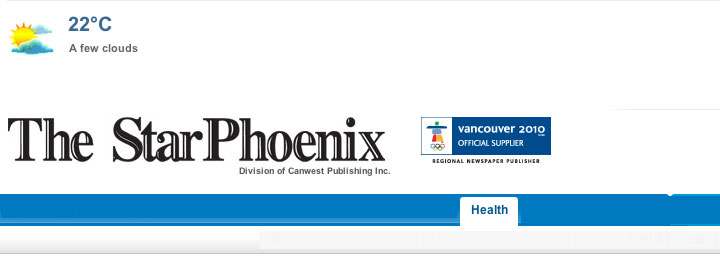
Saskatchewan contemplating the production of medical isotopes, Premier Brad Wall says
BY JEREMY WARREN, THESTARPHOENIX.COM JUNE 11, 2009

SASKATOON — Saskatchewan helped pioneer nuclear medicine and the province could use its experience as an answer to Canada’s current medical isotope shortage, said Premier Brad Wall.
“We can provide real answers to the world on the medical isotopes issue,” he told reporters before heading off to meetings in the Yukon and U.S.
“I’m waiting to hear from the Saskatchewan people, but I would say I have an interest in it, very much so.”
On Wednesday, Prime Minister Stephen Harper said the federal government was leaving the medical isotope business after Atomic Energy of Canada Ltd. shut down the Chalk River, Ont. reactor that produces the isotopes.
The discovery of a radioactive water leak and subsequent shutdown has led to a world-wide shortage of medical isotopes.
The province is seeking public input on expanding the uranium industry and future involvement in nuclear energy at a month-long series of meetings across Saskatchewan.
“I’m not going to preclude what we hear from the people of this province and from (consultation chair Dan) Perrins and from the process we have with the Uranium Development Partnership,” said Wall.
“It is the view of the government, not to the exclusion of the input we’ll receive, but it the view of the government — we campaigned on the view — that we should add value to the uranium at some level.”
Canada produces about 70 per cent of the world’s medical isotopes, used for diagnosis and treatment in cancer patients.
Saskatoon, with a Slowpoke II research reactor and history of nuclear medicine development is poised to contribute again, said Wall.
Wall heads to Park City, Utah to meet with Western U.S. governors on June 14 and 15.
He’ll talk about collaboration possibilities on renewable and non-renewable energy projects and let participants know the province is nearing the end of public consultation.
The Uranium Development Partnership, a government-appointed board that recommended Saskatchewan build a 3,000 Megawatt nuclear reactor, concluded a stand alone isotope reactor is not viable.
Isotope production could only be economically justified if twinned with a research reactor, said the report.
The UDP recommended partnering with Ottawa to build a research reactor and pursue medical isotope production as part of the reactor’s mandate.
jjwarren@sp.canwest.com
© Copyright (c) The StarPhoenix